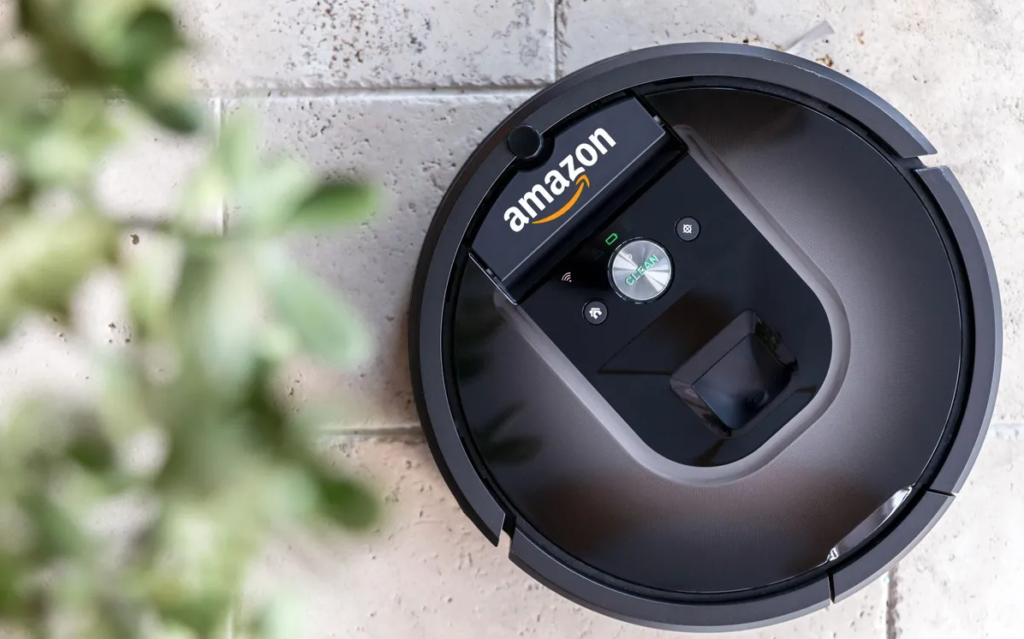|
Getting your Trinity Audio player ready...
|
In a significant development, British antitrust regulators have given their clearance to Amazon’s proposed acquisition of robot vacuum maker iRobot. The deal, valued at $1.7 billion, still awaits scrutiny in the United States and Europe, where concerns over market dominance and competition remain.
The Competition and Markets Authority (CMA) in the UK stated that it would not escalate its initial investigation as it determined that the acquisition would not lead to a “substantial lessening of competition” within the country. Amazon expressed its satisfaction with the decision and expressed hope for similar outcomes from other regulators.
However, consumer groups have raised apprehensions regarding Amazon’s purchase of iRobot, the renowned producer of Roomba robotic vacuum cleaners based in Bedford, Massachusetts. They fear that this move would further strengthen Amazon’s dominance in the smart home market.
The acquisition is currently under review by the Federal Trade Commission (FTC) in the United States, as concerns over Amazon’s increasing market power persist. Additionally, the European Union’s executive arm recently initiated a review of the deal.
The UK watchdog justified its decision by highlighting that robot vacuum cleaners and the data they gather are not widely regarded as critical entry points to the emerging smart home devices market. The CMA further emphasized that iRobot already holds a modest market position in the UK and faces significant competition from several rivals. Consequently, Amazon would have limited incentive to provide preferential treatment to iRobot products over its competitors on its online platform.
As the acquisition undergoes further scrutiny in the US and Europe, the outcome of these reviews will be instrumental in determining the future of the deal and its implications for the smart home industry.
The ongoing reviews in the United States and Europe hold significant implications for the future of the Amazon-iRobot deal and its potential impact on the smart home industry. The concerns raised by consumer groups reflect the growing unease surrounding Amazon’s expanding market power and its potential to stifle competition.

In the United States, the Federal Trade Commission is closely examining the acquisition, keeping a watchful eye on Amazon’s market dominance and the potential anti-competitive effects it may have. The outcome of this review will play a crucial role in shaping the regulatory landscape and determining whether any corrective measures need to be taken to preserve fair competition.
Similarly, the European Union’s executive arm has initiated its own review of the deal. The scrutiny from European regulators underscores the global concern regarding the consolidation of market power in the hands of tech giants. With the smart home market poised for rapid growth, the European Commission aims to ensure a level playing field and prevent any potential harm to competition and consumer welfare.
The decision by the UK’s Competition and Markets Authority not to escalate its investigation, citing iRobot’s modest market position and the absence of significant barriers to entry, offers some respite to Amazon. However, the ultimate outcome of the US and EU reviews will be critical in shaping the path forward for the acquisition.
If the deal receives approval in both regions, Amazon’s foothold in the smart home market could be further solidified. The integration of iRobot’s advanced robotics technology with Amazon’s existing portfolio of smart home devices and services could pave the way for enhanced automation and convenience for consumers. On the other hand, critics argue that such consolidation may hinder innovation, limit consumer choice, and create barriers for potential competitors.
As the regulatory reviews progress, the smart home industry and its stakeholders eagerly await the final determinations. The outcome will not only shape the destiny of this particular acquisition but also set precedents for future deals involving tech giants seeking to expand their influence across various sectors.
The implications extend beyond the Amazon-iRobot deal alone, as the regulatory decisions will serve as a litmus test for how authorities address competition concerns in the rapidly evolving landscape of emerging technologies. Balancing innovation, market competition, and consumer protection will be key priorities as regulatory bodies strive to ensure a fair and thriving marketplace for smart home devices and services.



